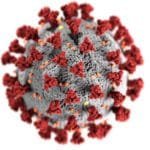COVID-19 Ongoing Pandemic
COVID-19 Pandemic

It wasn’t too long ago that we were going about our business in the usual way. And hopefully we can soon get back to our life in as normal of a sense as possible. With the plethora of information out there we are not here to re-state them or to agree or disagree with them. We are here to provide you with ways of maintaining your health (dental health) and to minimize potential dental emergencies for you during these strange times. However, if you have or develop an urgent matter, we are here to take care of you.
Foods/Snacks
There are lots of choices when it comes to eating and snacking. And everybody is different in what they like to munch on. Use the following as guidelines in helping you steer clear of tooth problems related to foods and snacks.
Crunchy foods/snacks – There are a number of tasty foods and snacks that are crunchy. And as tasty as they are, crunchy food places our teeth under great stress increasing the likelihood of a fractured or broken tooth. What are some of the precautions you can take when enjoying crunchy delights? Aside from trying to soften the crunchiness (people can get creative), you can chew s-l-o-w-e-r. When you take your time to chew and chew slowly, your mouth creates more saliva which softens the food and helps with digestion as well. Secondly, when you chew slowly, you are less likely to chomp down as hard on something super crunchy meaning you are not causing as much trauma to your teeth and less likely to chip or break something.
Sticky foods/snacks – Besides how crunchy a food maybe, there is a certain level of “stickiness” associated with foods and snacks. Peanut butter (yummy) sticks all over. An apple doesn’t stick to anything. You see what we are talking about. We are not saying eat apples and not peanut butter. Life will have no meaning then! What we are saying is after eating the food take the necessary steps to get the remnants off the teeth as best as possible. Tooth picks can be useful in certain cases. Better than toothpick are the inter-dental cleaners that are especially made to get into tight nooks and crannies without causing pain. In the absence of any of these (or in addition to) you can also rinse your mouth with water at the least and perhaps give a quick brush.
Beverages and drinks – When it comes to drinks in general, they can generally affect our teeth in one of 3 ways. They can weaken our teeth, stain our teeth or have no negative impact. Some drinks even have a positive impact but we’ll talk about those later. Some beverages that are notorious for weakening our teeth (and perhaps other bodily organs like bones, etc.) are sodas and a multitude of “healthy” or “energy” drinks. Some of these beverages contain different form of sugars which cause tooth decay. Regardless of the sugar content, all of these types of beverages are acidic in nature. This “acidity” robs the teeth of essential minerals making the tooth structure more susceptible to decay and sensitivity.
Staining is caused by some beverages more than others. Tea, coffee, red wine and soda are some of the usual suspects when it comes to sources of staining. But other foods and vegetables (pasta with red sauce, blue berries, etc) also cause staining.Now while staining is more an aesthetic problem, most people don’t like stained teeth. Luckily there are numerous ways to negate the staining effect of beverages on an ongoing basis. Drinking water that is neutral (pH = 7) has no negative effect on your teeth. And better yet, drinking water that has an alkaline pH (less acidic) is great for re-fortifying the tooth structure. Bottom line here is to ingest more water (and better yet, healthy pH balanced water) and less of other beverages. You can also negate the negative (acidic) effect of soda and juices on the teeth by drinking more water with a higher pH to offset the acidity.
Chewing gum – A lot of people chew gum (judging by all the flavors and brands that are available). The problem with chewing gum is not so much the sugar content as now most gums are sugar free (and still great tasting). Problem is with excessive for forceful gum chewing. This places a great load on the jaw joints, the muscles in our head and neck and of course the teeth. Sometimes excessive gum chewing causes pain and discomfort similar to a toothache. As a rule of thumb, limit chewing gum to 5-10 minutes (’til the flavor is almost gone). And don’t pop in gum after gum, obviously.
While we don’t know when we can get back to normalcy, we do know one thing. We will be here if you do need help with a tooth or some other dental issue. We are offering Virtual Consultations as well as Tele-Dentistry for more involved cases. If you need to contact us you can also use the form below.
Follow the suggested guidelines, practice good dental (and mental) hygiene and we’ll get thru this together.
Dr. Eslampour
